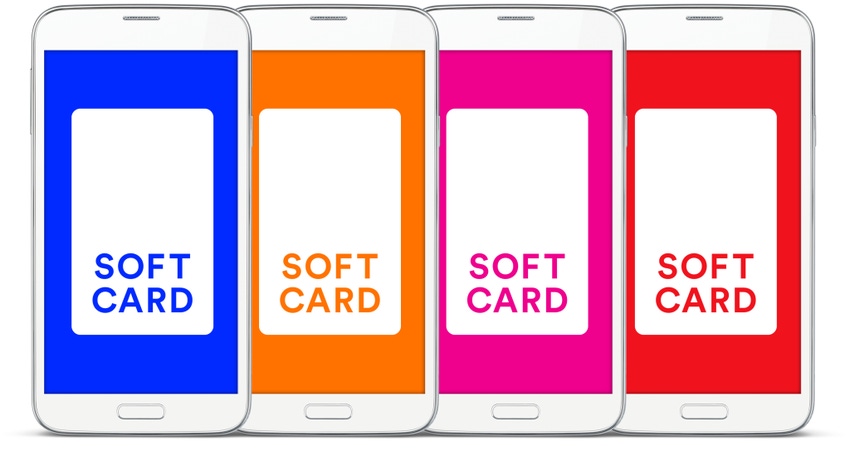Google & Samsung move to counter Apple Pay debut
Google has stoked the fire burning underneath the mobile payments industry by announcing its acquisition of “some exciting technology and intellectual property from Softcard to make Google Wallet better.” The payment software will come pre-installed as standard on Android phones running KitKat or higher with three of the big four carriers across the USA, AT&T, T-Mobile and Verizon.
February 24, 2015

Google has stoked the fire burning underneath the mobile payments industry by announcing its acquisition of “some exciting technology and intellectual property from Softcard to make Google Wallet better.” The payment software will come pre-installed as standard on Android phones running KitKat or higher with three of the big four carriers across the USA, AT&T, T-Mobile and Verizon.
There are a few reasons why the announcement piques the interest. Firstly there’s the timing of it. Mobile World Congress is just around the corner, and mobile payments is likely to be one of the hot topics dominating 2015’s show. Visa Europe is lining up a buffet of mobile payment seminars, content and announcements, including a focus on tokenisation.
Tokenisation is the primary means used by Visa to protect customer data, substituting payment account information on traditional cards with a series of numbers that can be used to authorise payments without exposing actual account details. This technology has already been implemented in the USA, hence the reason why Apple Pay has been able to launch in North America already. Tokenisation, Visa says, has spent some time being tailored to the European payment market, and will be hitting banks across the continent in mid-April. Presumably, Apple Pay therefore won’t be far behind.
Sandra Alzetta, Executive Director of Core Products for Visa Europe, reckons mobile payments is set to explode, as we’re all anticipating: “This is an exciting time to be in the payment industry,” she said. “We believe that 2015 will be the year that mobile payments will be in the hands of consumers across Europe.”
Google’s announcement is also hot on the heels of Samsung’s announcement last week that it has fully acquired LoopPay (for an undisclosed amount), which is currently compatible with roughly 90% of point of sale systems in North America, according to Samsung. As a quick side-note, the LoopPay website has identified Apple Pay’s infancy as its weakness in a handy infographic, as one might expect.
Aside from Samsung’s competitive intentions with the acquisition of LoopPay, one questions how Google and Samsung’s until-now peaceful co-existence may be affected with both firms vying for market share in the mobile payments space.
Google’s already said Softcard “will come pre-installed on Android phones (running KitKat or higher) sold by these carriers in the US”, referring back to its aforementioned blog page. Samsung, meanwhile, doesn’t appear to be messing about in stating its desire to lead the mobile payment space. “This acquisition [of LoopPay] accelerates our vision to drive and lead innovation in the world of mobile commerce,” said JK Shin, President of IT and Mobile Division at Samsung Electronics. “Our goal has always been to build the smartest, most secure, user-friendly mobile wallet experience, and we are delighted to welcome LoopPay to take us closer to this goal.”
So with Samsung being the primary distributor of Android devices for Google, the ensuing power-struggle between the two will be an interesting development to keep an eye on. As it stands, LoopPay and Softcard are both restricted to North America, with the latter being signed up to Amex, Chase and Wells Fargo. Google’s cross-device ubiquity across pretty much any non-Apple device would appear to give it an early advantage for users over being tied into Samsung, however its product may appear to be less substantially developed than Samsung’s recent acquisition. Apple’s dedicated, and indeed growing, iPhone 6 user-base is likely to hand it a respectable market share of the mobile payments space.
Expansion beyond the American border will be the next major hurdle for both products, and Visa Europe’s announcement of tokenisation availability in Europe suggests the region will be the next logical destination for m-payments. Apple Pay, meanwhile, may be well positioned to enter the European market early by capitalising on its existing user base. Apple Pay wouldn’t require any additional products to be purchased by users of its NFC-enabled product range, whereas Samsung’s LoopPay does for now require procurable hardware to upload card information onto the user’s device.
Of course, the European market is an easily accessible market for the dominant players in North America; however the real jackpot has to be in cracking the Chinese market, considering its increasingly growing influence on the global economy. Anyone looking to hijack the Chinese market will have to find a way of toppling the already dominant Alipay. The online subsidiary of e-commerce giant Alibaba accrued more than 300 million users by Q1 2014, and has around half of the online payments market in the territory, according to some numbers posted by Credit Suisse.
As telecoms.com reported in January, Apple’s iPhone 6 launch spurred growth in revenues of more than 70% in China in Q4 2014 compared with the same period in 2013. The tech giant appears to be positioning itself well for a global assault on the m-payments industry, when we consider that Visa’s April tokenisation launch also ties itself nicely into Apple pushing its first wearable offering, Apple Watch, into market at the same time.
So, in all, it would be fair to say that the m-payments biz is going to be a very interesting sector to keep an eye on in the next 12 months.
While the broader payments picture is starting to come into greater focus, 2015 will surely have its fair amount of spills and thrills for three of the industry’s biggest players, and exactly what comes out of Mobile World Congress will accelerate the clarity into which that picture is brought.
About the Author(s)
You May Also Like








.png?width=300&auto=webp&quality=80&disable=upscale)


_1.jpg?width=300&auto=webp&quality=80&disable=upscale)


.png?width=800&auto=webp&quality=80&disable=upscale)